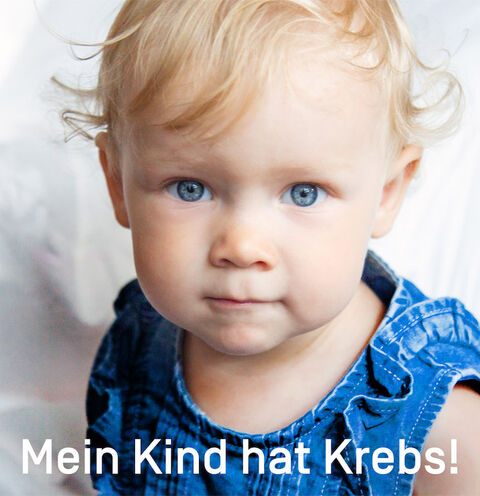
My child has cancer
In Switzerland, around 300 children and adolescents are diagnosed with cancer every year, more than half of them are infants and children under the age of four. The diagnosis is a major shock for the whole family, and the ensuing fight against the disease often means not only a physical but also a high psychological and financial burden. Childhood Cancer Switzerland and its member organisations are committed to improving the situation of those affected throughout the country. To raise awareness of the issue among the population, the umbrella organisation is launching a new campaign from 1 to 30 November 2020.
A diagnosis of cancer means an abrupt change to the life of the whole family: parents and children spend months travelling between home and hospital, and are under extreme stress during this time. Most patients are small children who need their parents every day during the long therapy. Legally, parents of seriously ill children are now entitled to 14 weeks of care leave. However, in the case of cancer therapy, which can last a year or more, this time is not sufficient. More flexible forms of work are needed to further relieve parents. “If employees are finding it easy to work from home during the pandemic, why not parents of children with cancer in the longer term?” says Valérie Braidi-Ketter, CEO of Childhood Cancer Switzerland.
Covid-19 has made digital teaching possible and could be a solution for young cancer patients who have to stay away from school due to their disease
Children and adolescents suffering from cancer are torn away from their usual social environment by months of therapy. Intensive hospital stays are followed by weeks and months of recovery. During this time, they are often unable to attend school or meet friends – the effort could simply be too much for them and the risk of being infected too great. Many of them therefore simply cannot keep up in class, may even have to repeat a year and naturally suffer from the lack of contact to their classmates. There are of course offers of teaching in the hospitals, but concepts vary from canton to canton and can in no way replace the familiar social environment. Here, the coronavirus crisis has shown that online teaching with classmates is absolutely feasible. If this were available to children and young people with cancer in the longer term, those affected might not lose touch either educationally or socially, as has often been the case to date.
Parents at breaking point
Parents of children and adolescents with cancer are not only faced with major organisational and psychological challenges: there are also unexpected expenses that put a strain on the family budget and can cause families existential hardship. These include additional costs for hospital visits, deductibles, meals out, sibling care and psychosocial support, which are often not covered by health or social insurance. As if this were not stressful enough, some parents find out that part of the therapy costs are not reimbursed by the health insurance companies. And even after successful cancer therapy, the situation of the whole family can change permanently. “If the late effects mean it is no longer possible for a cancer patient to return to his/her former life, for example in the case of a brain tumour, there are many questions that need to be asked with regard to educational and professional perspectives,” says Valérie Braidi-Ketter. Sometimes parents and survivors don't know where to turn and what help they are entitled to. Therefore, there is an urgent need for more contact points that offer survivors and their parents psychological and socio-legal counselling as well as effective and long-term support in school, professional integration and in working life.